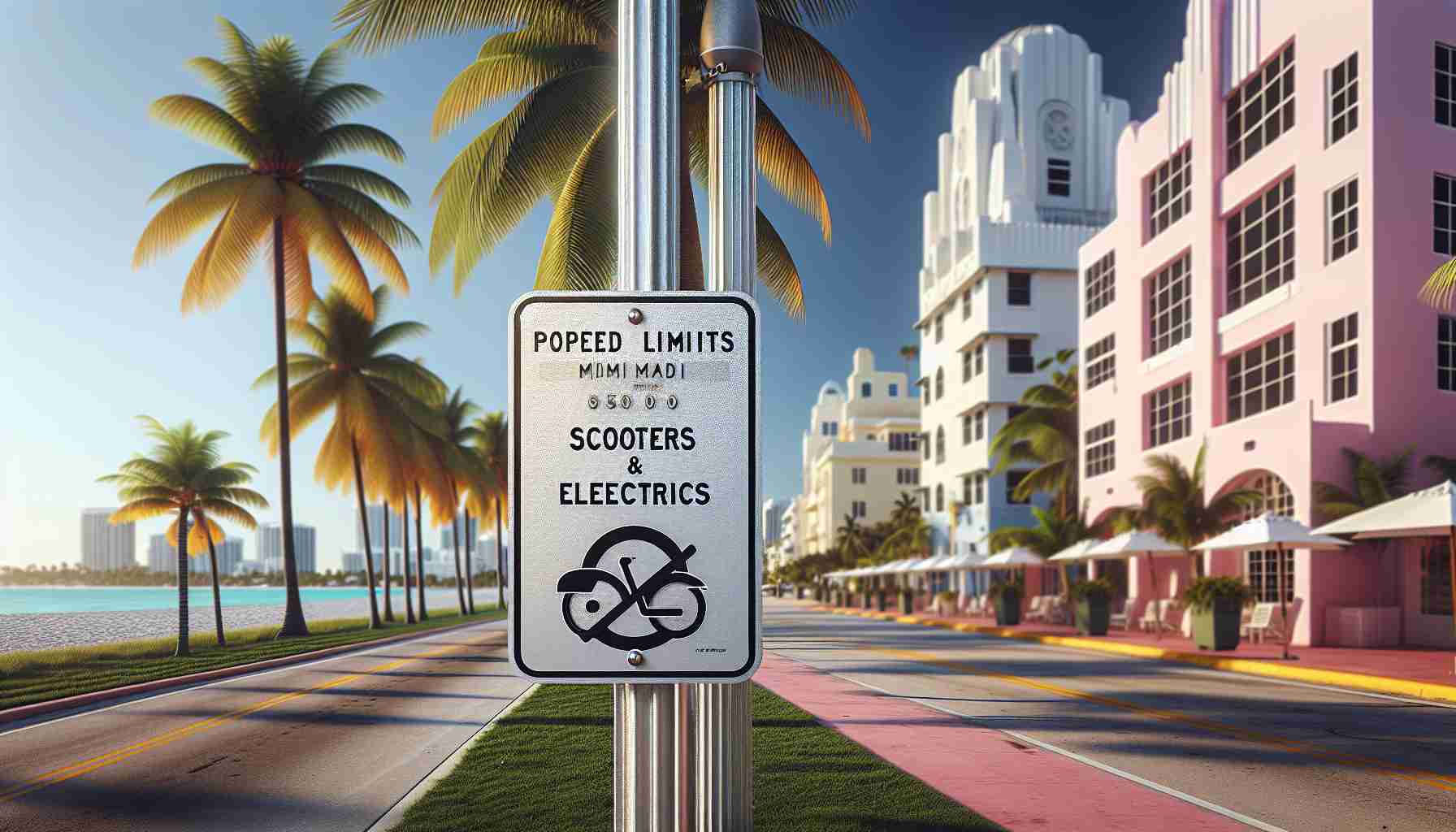Miami-Dade County is currently exploring the possibility of implementing a speed limit of 15 mph for scooters and electric bikes. Although the rules may initially only apply to one island community, legislation has already passed a preliminary vote in favor of imposing the speed cap and other regulations.
Commissioner Raquel Regalado, the sponsor of the proposed legislation, intends to narrow its scope to only apply to Key Biscayne, a municipality in her district. However, as currently written, the rules would impact all county roads outside city limits, where Miami-Dade has jurisdiction over zoning and local decisions. Those found in violation of the speed limit could face a $250 fine. Additionally, riding scooters and e-bikes on sidewalks and roads without bike lanes, where the speed limit exceeds 30 mph, would be prohibited.
While Key Biscayne officials support these measures, they have faced criticism from Transit Alliance Miami, which referred to them as a “heavy-handed option.” This organization advocates for alternative modes of transportation, such as scooters and electric bikes, and argues for more comprehensive studies before implementing strict speed limits and restrictions.
Commissioner Regalado plans to introduce a revised version of the legislation that focuses solely on Key Biscayne. By establishing a local agreement, municipalities would have the authority to set their own rules for scooters and e-bikes on county roads.
The temporary ban on scooters and electric bikes in Key Biscayne was prompted by a fatal collision involving a traditional bike and an electric bike rider. The incident resulted in the death of a bicyclist and led to the village imposing emergency measures.
While the legislation is currently broad in scope, the intention behind it has always been to address Key Biscayne’s concerns regarding the regulation of these vehicles on county roads. With further discussions and revisions, Miami-Dade County aims to find a balance between ensuring public safety and accommodating the growing popularity of micromobility options.
The implementation of a speed limit of 15 mph for scooters and electric bikes in Miami-Dade County highlights the ongoing debates and challenges within the micromobility industry. As more cities and municipalities embrace these alternative modes of transportation, there is a pressing need to regulate their use to ensure public safety and address concerns raised by local communities.
The rapid growth of the micromobility industry has been driven by factors such as increasing urbanization, environmental concerns, and the demand for convenient and cost-effective transportation options. According to market forecasts, the global micromobility market is expected to reach a value of $150 billion by 2025, with electric scooters and bikes accounting for a significant portion of this growth. The industry has attracted large investments from both venture capitalists and established players in the transportation sector.
However, as the popularity of scooters and electric bikes increases, so do the challenges associated with their integration into existing transportation systems. Issues such as rider safety, pedestrian interactions, parking, and infrastructure requirements have become focal points for policymakers and local authorities.
In the case of Miami-Dade County, the proposed speed limit and other regulations are a response to concerns raised by the Key Biscayne community following a fatal collision involving a traditional bike and an electric bike rider. While the aim of the legislation is to ensure public safety, it has faced criticism from pro-micromobility organizations such as Transit Alliance Miami, which argues for more comprehensive studies and less restrictive measures.
The debates surrounding micromobility regulations highlight the complexities involved in finding a balance between innovation and safety. While cities and municipalities recognize the benefits of alternative modes of transportation, they must also address the potential risks and challenges that come with them. Approaches such as localized agreements, as proposed by Commissioner Regalado, can provide a framework for tailor-made regulations that take into account the specific needs and concerns of different communities.
As the micromobility industry continues to evolve, it is likely that we will see further discussions, pilot programs, and policy adjustments aimed at addressing the unique challenges posed by these emerging modes of transportation. The key to successful integration lies in collaboration between industry stakeholders, policymakers, and local communities to create a sustainable and safe micromobility ecosystem.
Related links:
– Forbes: Experts Discuss Scooters, Bikes, Wheelchairs, And The B2B Impact For Smart Cities
– Global Newswire: Electric Bike Market – Demand, Size, Sales, and Growth Opportunities by 2028
– Miami-Dade County Department of Transportation and Public Works







